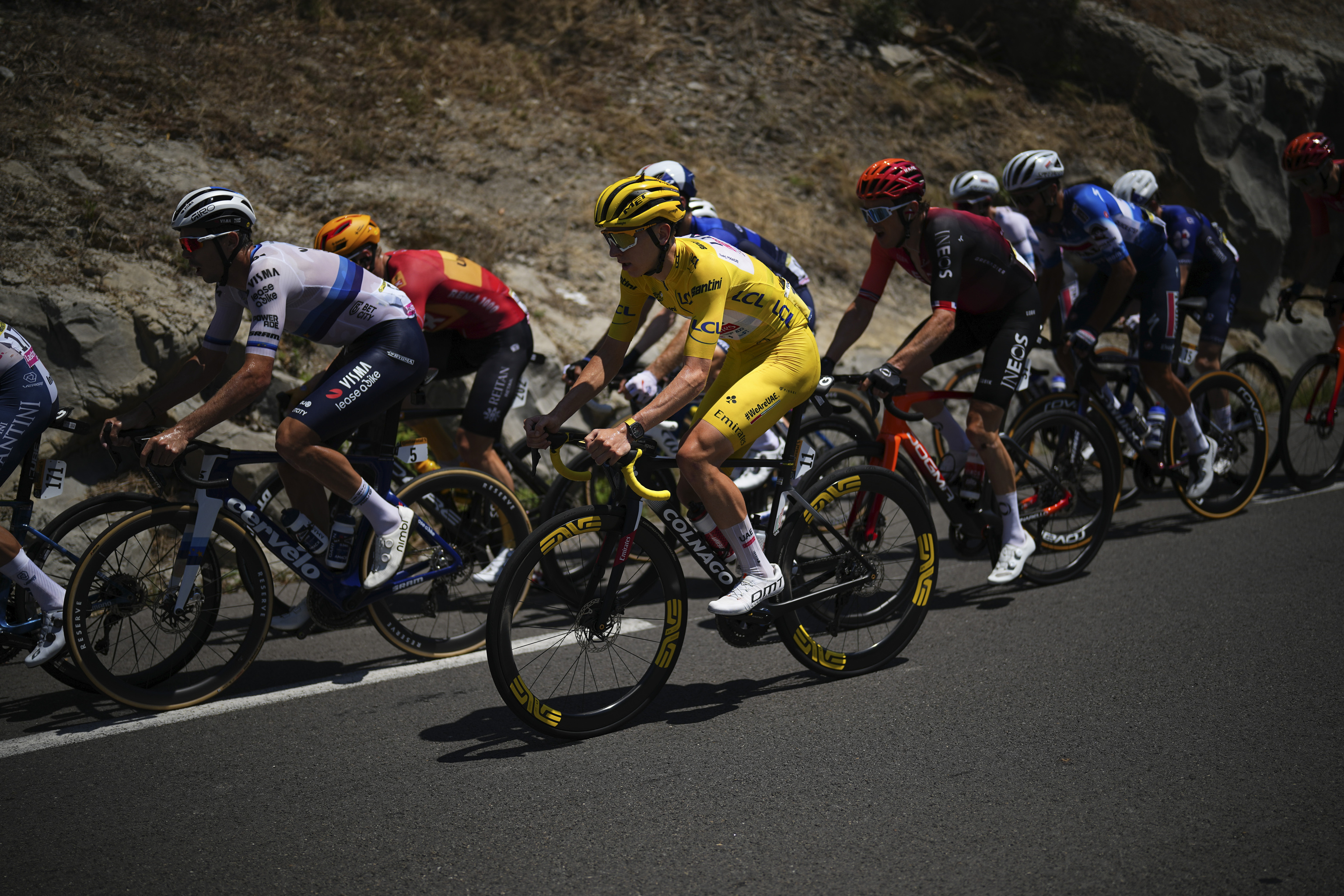After winning the Giro a month and a half ago, after the relentless 19 stages of the current Tour (17 defending the yellow jersey), after only yesterday ascending the Col de Vars and the extremely high Cime de la Bonette at 2,802 meters (the highest point in a grand tour), Tadej Pogacar climbed the 16,100 meters of Isola 2000 at 25.3 kilometers per hour (7.1% average gradient). Despite not needing to do so due to his lead in the general classification. Despite Matteo Jorgenson and the remnants of the day's breakaway being three minutes ahead. Despite everything, he did it four minutes faster than Miguel Indurain and Tony Rominger did 29 years ago.
He achieved this by devouring rivals, as if possessed, leaving Jonas Vingegaard far behind and too early, in 38 minutes and 13 seconds. In 1993, the only previous finish in Isola, the climb was one kilometer shorter, and the Swiss and the Spaniard did it in 41:49, four kilometers per hour slower. Despite exploring his limits -"I felt a bit empty in the final two kilometers and when I pushed to pass Jorgenson, he left my legs dead," he admitted when asked why he kept looking back at the end- in this ascent that he knows so well. Not only because he resides in Monte Carlo, but also because, aware that everything would be decided here, he spent the entire month between the Giro and the Tour repeatedly riding these climbs. "It was a very tough concentration, with no easy days since we had to climb every day. My teammates and I had already talked about how eager we were to race this stage, and we did it as we had said, setting a good pace until the moment I attacked. It was perfect," said the leader, who finally embraced (first with a mask, then without) his girlfriend, the cyclist Urska Zigart, at the finish line.
But it was precisely there where the image of the day occurred. The long and emotional embrace of Vingegaard with his pregnant wife. The uncontrollable tears after the effort, flowing from the always composed Dane, perhaps recalling in those moments when he was already aware that he would not link his third consecutive Tour, the ordeal he went through after his accident in the Itzulia in April just to be able to try. "I saw Trine again and it was a tough moment. In one way or another, there were many emotions that needed to come out," confessed the rider who is now over five minutes behind in the general classification, an enormous distance, similar to 2021 when he also finished second behind the Slovenian.
"I suppose that these last two years without winning have ignited a certain fire within me, and I want to make the most of this Tour," said Pogacar, who, although he lost the polka dot jersey to Carapaz, waved the white flag at last and promised a truce for the mountainous stage on Saturday. With his third stage victory in yellow, he achieves a feat not seen in the Tour since 1984 when Laurent Fignon won as the leader in La Plagne, Crans-Montana, and Villefranche-sur-Saone.
Jonas, on the other hand, admitted that in his mind he was planning to attack "at the Bonette, about 10 kilometers from the summit," but that his legs "weren't there," and he raced "for second place" with Evenepoel. However, the leader of Visma did not want to make excuses: "I am not disappointed with the story we have had in the last three months. I came to the Tour to win."
